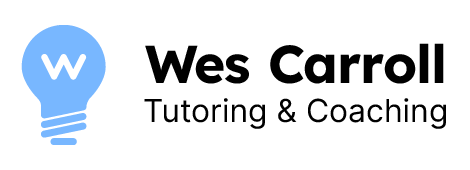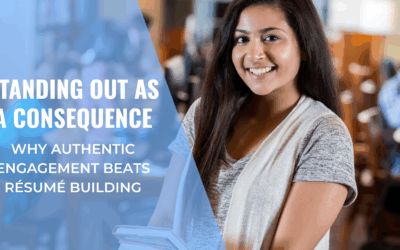Short answer: Because the way I do it, the students gain skills they’ll actually use throughout their adult lives.
My buddy Tutor Amie and I were discussing this recently: Check out the clip.
If you didn’t know, I host a podcast with Amie Dorsey called “Wes and Amie’s Excellent Conversation” (on YouTube).
In this episode, we discuss current events and multiple intelligences, with me touching on how believing in multiple intelligences could lead to a fixed mindset. During this conversation, I talked about why I coach people who take the ACT tests:
Answer from that bit of the podcast:
Amie:
We were talking, and you mentioned how the way we think and how our minds operate is like a series of hacks, right? So, I’m pondering this: some minds might be more adept at adopting these hacks quickly, finding the most efficient ones. If learning these hacks is central to becoming smarter, then how significant is raw intelligence or “horsepower”? Given enough time, can someone learn as many hacks as needed to be considered a genius?
Wes:
Your point brings to mind the distinction often made in business development and entrepreneurial circles. Having a brilliant idea is commendable, but execution is paramount. Ideally, you’d want both a solid idea and stellar execution. Similarly, if you aspire to be exceptionally successful or what some might call a “genius”, you need both potential and the means to harness it. However, most often, our emphasis is on tapping into the potential we already possess since that’s more tangible.
Regarding aptitude, I believe there’s a certain inherent ability everyone has. It’s not that a child can’t become exceptionally skilled in an area they currently lack proficiency in; it’s entirely possible. But there are time constraints. For instance, if a student aims for a perfect ACT score within nine months, that’s quite ambitious.
I’ve often said to people, ‘I can get you a perfect score on the SAT or the ACT. However, you’re going to have to take a year off from school to achieve it. We’re going to cover a lot, and you might feel that you could have spent that year doing other things. It’s not that it’s impossible; it’s just that there’s a price to pay. In a way, there’s a toll it takes on your soul. Some of the things you have to learn for the test might have limited value outside of that context.
And yet, I’m going to contradict myself to some degree with what I’m going to say next. Granted, there are some kinds of improvement that you can’t achieve in the time frame you’re dealing with here. However, what really saddens me about that parent comment you mentioned is that there’s a ton of stuff you can change in that time frame. The beautiful part is, some of it is useful only in the context of the ACT, but not nearly as much as people think.
It is true that the ACT is testing, you know, how much of the math vocabulary you’ve internalized or “encyclopediazed” in your mind. Thank you for pointing that out. So yes, that’s true. To some degree, it’s about filling in the gaps in knowledge.
While some might argue that’s only useful for the ACT, the reason it’s part of a math curriculum is that it’s going to be useful for other things later on. So there’s intrinsic value there.
Why I coach students for ACT Tests — Wes Carroll
But the overarching or “meta” value overshadows all of it. We’re going to do an A to Z review of what you know in this broad field, identify where you’re lacking, and then explore ways for you to not only acquire new knowledge but also develop new ways of thinking. And all of this in a manner that remains robust under test pressure. There’s a lot to consider.
Navigate the Podcast Video
- 02:18 Introduction of Wes and Ted
- 08:16 The problem with fixed abilities and the difference of SAT from ACT
- 10:07 The parents’ beliefs tend to become the student’s beliefs
11:48 Bright is bright, deconflating how powerful your engine is versus how good a driver you are - 14:03 TD: “Some minds are probably capable of taking on hacks more quickly, finding the most efficient hacks and choosing them and adopting them.”
- 17:48 Looking for ways to take on board not just new knowledge but a new schema for thinking
- 19:34 Not looking at education as a personal activity but as facts and figures
- 21:53 How a person can even be conscious of his own thinking
- 22:45 WC: “There’s a lot of crossover between what we do and parenting, at least on the theoretical level.”
- 29:18 What worked for you as a student may or may not work for your daughter as a student
- 35:16 Different family types and how it fail
- 43:15 TD: “You could teach the same exact content and it can be doing different work.”
- 47:03 WC: “We will be your experienced guide but there is not a single step on this path we’re taking for you. You still have to walk the path.”
- 51:29 Using your awareness of your human tendencies to create new positive outcomes and to avoid maladaptive behaviors and thought patterns
P.S.: Snappy title notwithstanding, I don’t “coach the ACT,” I coach people through the process of learning to excel at that test.



0 Comments